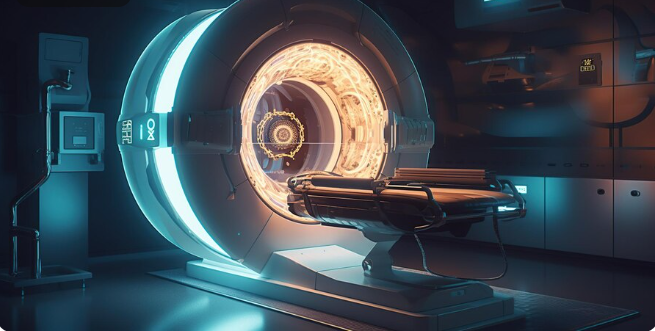Point‑of‑Care Imaging in Halifax: Portable Ultrasounds in Clinics and ERs
Diagnostic imaging Halifax has long depended on hospital-based systems, but a transformative shift is underway. Point‑of‑Care Ultrasound (POCUS) — the use of portable ultrasound machines by trained clinicians at the bedside — is gaining momentum in clinics and emergency departments across Canada. This evolution promises faster diagnoses, improved patient experience, and smarter allocation of resources.
What Is the Point‑of‑Care Ultrasound (POCUS)?
Point‑of‑Care Ultrasound allows physicians, nurse practitioners, and other trained professionals to perform ultrasound examinations immediately at the patient’s side. Unlike traditional ultrasound, which requires patients to travel to a radiology department, POCUS delivers real-time insights in emergency rooms, clinic rooms, and even remote settings.
Initially used in obstetrics and cardiology, POCUS has since expanded across emergency medicine, internal medicine, and primary care—endorsed by national societies such as the Canadian Association of Emergency Physicians (CAEP)
Why POCUS Is Gaining Momentum in Halifax
- Quickness and Precision in Emergencies
Quick knowledge can spell the difference between life and death in emergency situations. According to Canadian studies, POCUS is widely used in emergency rooms by doctors for cardiac evaluations, FAST tests (trauma), and the assessment of abdominal aortic aneurysms. Point-of-care imaging expedites decision-making and decreases diagnostic delays.
2. Patient‑Centered Care
Bedside ultrasounds allow direct interaction—patients can see and understand their own diagnosis. Studies show that 95% of patients felt the experience improved their care, with many reporting greater trust and clarity in their follow-up plan .
3. Cost‑Effectiveness
Portable ultrasound is significantly cheaper than CT and MRI. It’s particularly valuable in remote clinics, where healthcare costs per capita are higher and transportation burdens are immense.
- Growing Utilisation in Community Health
Portable ultrasonography is extremely useful in distant villages and rural Nova Scotia. Although there aren’t many official studies in Halifax, nearby provinces report an increase in the usage of POCUS in clinics and satellite emergency rooms, particularly for acute evaluations and prenatal scans.
Core POCUS Applications in Halifax
POCUS serves multiple bedside roles:
Internal bleeding: in trauma instances can be promptly detected with the Trauma (FAST Exam).
Cardiac: Determines heart failure, systolic function, and pericardial effusion.
Pneumothorax, pneumonia, pleural effusion, and oedema are all detected by pulmonary imaging, which in certain cases is more accurate than chest X-rays.
Rapid screening: for abdominal aortic aneurysms (AAA) is possible with a sensitivity of >93% and a specificity of ~97%.
Obstetrics: vital in front-line and rural clinics, it determines gestational age, excludes ectopic pregnancy, and confirms intrauterine pregnancy.
Musculoskeletal and Soft Tissues: Identifies joint effusion, directs drainage, and aids in the differentiation between cellulitis and abscess.
Evidence Supports POCUS Use
Increased Use and Training: Canadian EDs report formal POCUS education, with usage increasing in core applications while varying based on experience
Improved Outcomes: Studies link POCUS with shorter time to intervention and shorter hospital stays, especially in critical care and soft tissue infections
High User Satisfaction: Clinicians appreciate POCUS’s immediacy; patient satisfaction is similarly high.
Overcoming Barriers to Adoption
Education and Accreditation
Even though POCUS criteria are set by national programs and the Canadian Point-of-Care Ultrasound Society, many physicians, particularly in rural regions, perceive a lack of training as a hindrance.
Retention of Skills
It is difficult to sustain competency when scan frequency is low. Regular refreshers and support systems are advised by CAEP.
Integration of Workflow
Maintaining contact between providers and preserving scans in electronic systems are essential components of effective integration.
Finances and Policies
Aligned principles, institutional rules, and insurance coverage are crucial. Increased financing and hospital education initiatives have been demonstrated to boost POCUS utilisation.
The Future of POCUS in Halifax
Expansion of Portable Technology: Compact gadgets are revolutionising care in both urban and rural areas.
AI Integration: Machine learning fills in talent gaps by providing real-time scan interpretation and quality control.
Tele-Ultrasound: In satellite clinics, bedside assistance is made possible via remote expert supervision.
Primary Care Adoption: To lessen their reliance on hospitals, Halifax clinics might use POCUS for screening and soft tissue examinations.
Halifax Residents: Next Steps in Imaging
Residents looking for more thorough imaging might think about private companies such as Why Wait Imaging. Seamless diagnostic imaging Halifax care is supported when bedside POCUS is combined with clinic/facility imaging, such as MRI and ultrasound, in emergency scenarios.
Excellent, patient-centered imaging is provided by our team of exceptionally skilled and knowledgeable experts. We guarantee prompt and accurate results to direct efficient therapies, whether you need an MRI, formal ultrasound scan, or POCUS in an emergency room setting.
Summary
Point-of-Care Ultrasound is transforming diagnostic imaging in Halifax by providing quick, precise, and patient-friendly evaluations in emergency rooms and clinics. Strongly supported by science, it improves triage, shortens wait times, and gives both patients and clinicians more influence. Halifax is poised to become a national leader in bedside imaging as training, technology, and policy advance, promoting a more responsive and healthy healthcare system.
